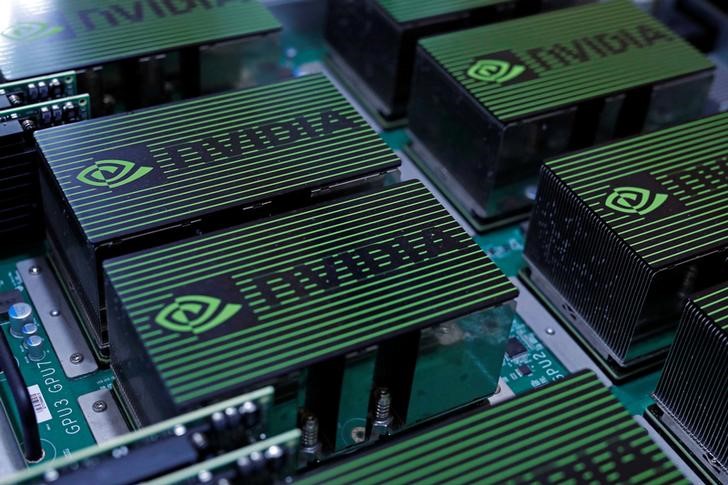On Tuesday, BofA Securities highlighted its positive stance on Uber Technologies Inc . (NYSE:UBER), maintaining a Buy rating and a price target of $96.00. The endorsement follows Uber's announcement of a collaboration with Nvidia (NASDAQ:NVDA), which is aimed at advancing autonomous vehicle (AV) technology using artificial intelligence (AI).
Nvidia, currently rated "EXCELLENT" by InvestingPro's comprehensive financial health assessment, brings considerable strength to this partnership with its perfect Piotroski Score of 9 and impressive revenue growth of over 150% in the last twelve months.
The partnership leverages Nvidia's newly introduced Cosmos platform and DGX Cloud to utilize Uber's extensive dataset from millions of daily trips. Nvidia's Cosmos platform, unveiled at the Consumer Electronics Show (CES), focuses on creating synthetic environments for the development of physical AI systems, including advanced robotics.
Meanwhile, the Nvidia DGX Cloud provides a fully managed AI platform equipped with Nvidia's architecture and software, facilitating AI model development across multicloud environments. With industry-leading gross profit margins of nearly 76% and strong cash flows, Nvidia demonstrates the financial capability to support such ambitious technological initiatives. For detailed insights into Nvidia's financial metrics and 20+ additional ProTips, visit InvestingPro.
Uber CEO Dara Khosrowshahi expressed confidence that the collaboration with Nvidia will significantly accelerate the development of safe and scalable autonomous driving solutions. He emphasized the critical role of generative AI in the future of mobility, which demands both rich data and powerful computational resources.
The BofA Securities analyst noted the limited details available regarding the specific commitments and investments from both companies in the partnership. However, it is expected that Uber will allocate substantial resources to the initiative, considering its strategic importance to the company's business.
The announcement at CES also showcased a variety of AV partnerships and products, supporting the analyst's thesis that multiple automobile OEMs will integrate Level 4 self-driving technology in the long term. This development would provide Uber with a range of potential partners for AV ridesharing. Notably, Nvidia announced collaborations with several industry players, including Toyota (NYSE:TM), Aurora for self-driving trucks, and automotive supplier Continental.
The report suggests that by sharing data and ride imaging in an increasingly open-source manner, Uber could assist auto OEMs in achieving Level 4 autonomy more rapidly, potentially avoiding a scenario where only one OEM dominates the market. The quality and relevance of Uber's data, particularly for the ridesharing use-case, could provide a significant advantage.
In conclusion, BofA Securities reaffirms its Buy rating on Uber shares, citing the company as one of its top picks for 2025. The firm believes that Uber's involvement in new AV deals could shift the narrative surrounding the proliferation of autonomous vehicles.
With 34 analysts recently revising their earnings estimates upward for Nvidia, the market appears optimistic about this partnership's potential. Access comprehensive analysis and valuation metrics for both companies through InvestingPro's detailed research reports, available for over 1,400 US stocks.
In other recent news, Nvidia CEO, Jensen Huang, has shown readiness to meet with the US President-elect to discuss AI policy, potentially influencing the administration's AI stance. Nvidia is also making headway in the autonomous vehicle sector through partnerships with Aurora Innovation and Uber Technologies, aiming for large-scale deployment of driverless trucks and advancement of autonomous driving technology, respectively.
Benchmark has maintained a Buy rating on Nvidia's stock, noting the company's dominance in the AI chip market and its strong financial performance.
In the realm of industrial robotics and automation, Nvidia has launched new generative AI models and blueprints to enhance its Omniverse platform, a development that could have significant implications for robotics, autonomous vehicles, and vision AI applications.
This article was generated with the support of AI and reviewed by an editor. For more information see our T&C.
